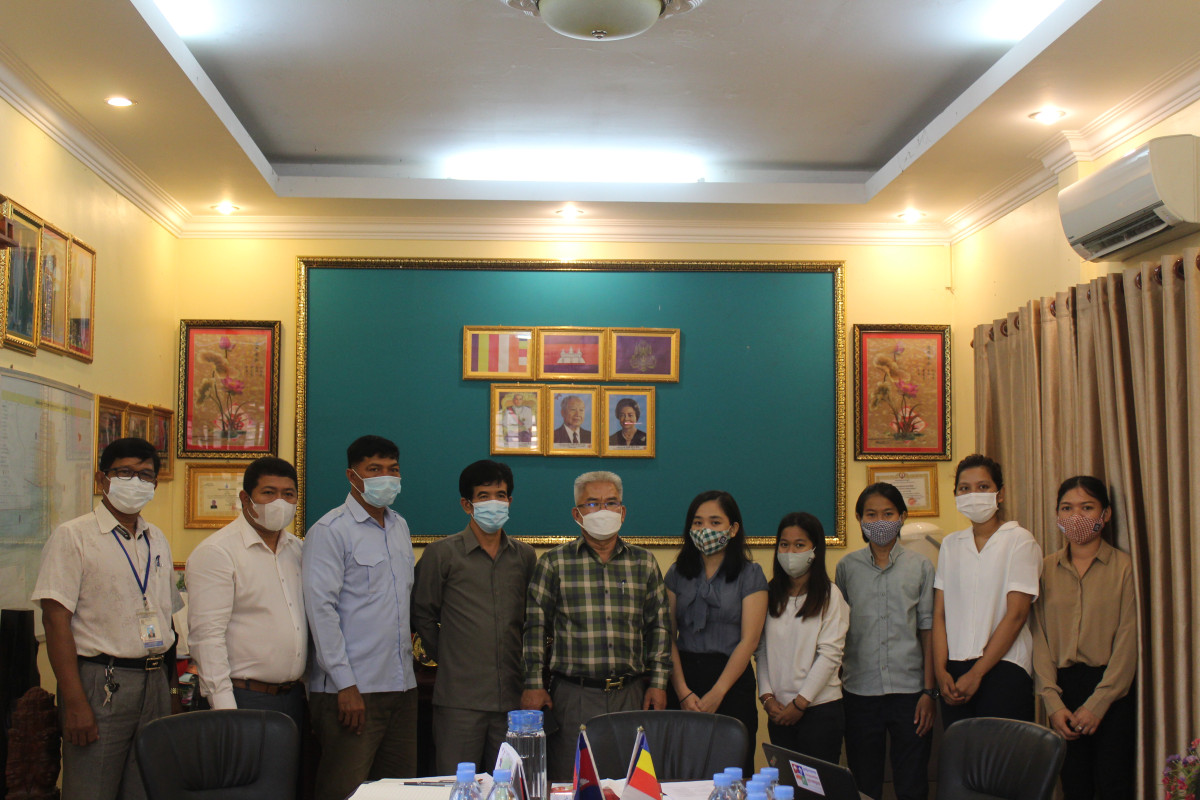Urban Innovation: Helping Cambodia’s Cities Prepare for Disasters
Published: Nov 2, 2021 Reading time: 5 minutes Share: Share an articleThis year’s World Cities Day focuses on Adapting Cities for Climate Resilience. The annual observance aims to strengthen and promote collective efforts by both cities and countries in promoting sustainable urban development.

More than half of the world’s population live in cities or towns.¹ Economic activities and assets are similarly concentrated, putting major industries at risk if the impact of climate change increases. If we fail to strategically build multi-hazard urban resilience systems, cities across the globe may face a cost of USD $314 billion in damages yearly by 2030.
According to a study from the United Nations, rapid urbanisation and population density result in a growing number of vulnerable people exposed to the threats and consequences of climate change. As more people move into urban areas, more infrastructure and better urban planning is needed to ensure the presence of proper drainage systems.
Flooding continues to be the most damaging natural hazard in Cambodia, and cost the country about USD $355 million in 2013. This natural hazard affects the agricultural sector, infrastructure, and the homes and livelihoods of communities. The intensified effects of climate change lead to rising temperatures and more sporadic weather patterns – a phenomenon that is predicted to increase across the country. ²
When it comes to disaster preparedness, cities in Cambodia have yet to learn, adapt, and respond to these natural hazards. In line with the national priorities of Cambodia’s Climate Change Strategic Plan (CCCSP), the project aims to work alongside the National Committee for Disaster Management (NCDM) in addressing the flood mitigation challenge by producing evidence-based recommendations for the Royal Government of Cambodia. The intended goal is to reduce the vulnerability of urban populations by facilitating access to an innovative and effective urban Early Warning System (EWS).
“PIN has been working with NCDM to develop the Early Warning System (EWS) 1294, a technology embedded at the core of our humanitarian response in Cambodia,” says Lukas Laube, Country Director, People In Need in Cambodia. “We know that climate change is happening, and we need to take action to help mitigate the effects on the lives of people, animals, and livelihoods. Since 2013, EWS1294 has been supporting various communities residing in the provinces of Cambodia. This year and beyond, we will continue to work closely with NCDM and other partners to strengthen the system’s last-mile communication; to ensure that EWS is accessible to all.”
To achieve these results, People In Need (PIN) will use an innovative approach to elevation data collection, facilitate the use of urban flood modelling for the City of Battambang, and explore additional last-mile communication channels for the implementation of a new urban EWS. In addition, to ensure that early warning messages can reach even those who have not yet subscribed to the “1294” hotline, the project, “Strengthening Climate Information and Early Warning System in Cambodia to Support Climate Resilient Development and Adaptation to Climate Change,” also known as “Urban EWS Innovation,” will ensure that early warning messages will be accessible for all.
“World Cities Day is a great reminder of the need to strengthen urban EWS innovation,” says Laube. “We have been focusing on the rural areas of Cambodia, and we think it is time to bring innovation to the urban areas of provinces. A first location is Krong Battambang. We are grateful to be working closely with NCDM and the Cambodia Climate Change Alliance (CCCA) consortium to continue the drive towards digitalisation for humanitarian aid.”
In line with the goals of World Cities Day 2021, the Urban EWS Innovation is a continued effort by the Royal Government of Cambodia to use its Early Warning System in promoting sustainable development. The project aims to build a more resilient country through the use of digital innovation. It is an initiative by Cambodia to inspire effective climate action at both local and national levels while sharing knowledge of effective solutions for urban resilience.
About Integrated EWS1249 Project and Urban EWS1294 Project:
The Early Warning System (EWS) 1294 Integrated Project is funded by the Ministry of Foreign Affairs of the Czech Republic, the Swiss Agency for Development and Cooperation (SDC), the United States Agency for International Development (USAID), and the World Food Programme. Past donors include the European Union and the United Nations Development Programme (UNDP). EWS1294 currently operates across 25 provinces and is capable of disseminating warning messages to hundreds of thousands of Cambodians, reducing vulnerability to floods primarily impacting rural populations. The EWS1294 is operated by the National Committee for Disaster Management (NCDM) and is developed by PIN.
The “Urban Early Warning System (EWS) Innovation” project is part of the larger initiative, “CCCA-Phase 3.” This larger initiative is implemented by the Department of Climate Change within the General Secretariat of the National Committee for Sustainable Development (NCSD), and is financially supported by the European Union, the United Nations Development Programme (UNDP), and the Government of Sweden.
The “Urban EWS Innovation” project will run for 18 months, funded under the CCCA-Phase 3 Project, supported by the National Committee for Disaster Management (NCDM), and implemented by People in Need.
--------------------
¹ https://urbanoctober.unhabitat.org/sites/default/files/2021-07/Concept%20Note%20WCD.pdf
² https://iwaponline.com/jwcc/article/1/1/67/31006/Modelling-climate-change-impacts-on-the-flood



